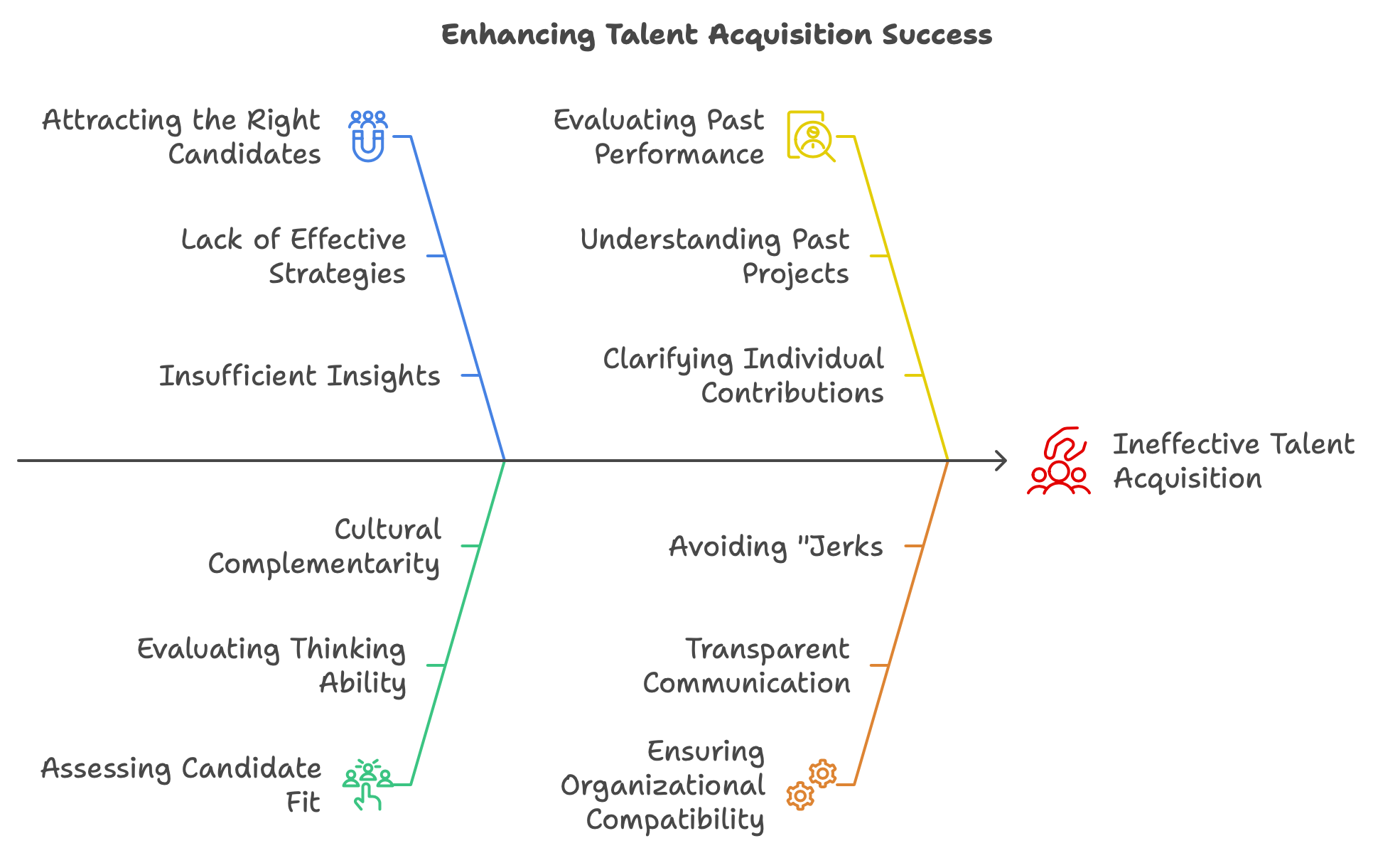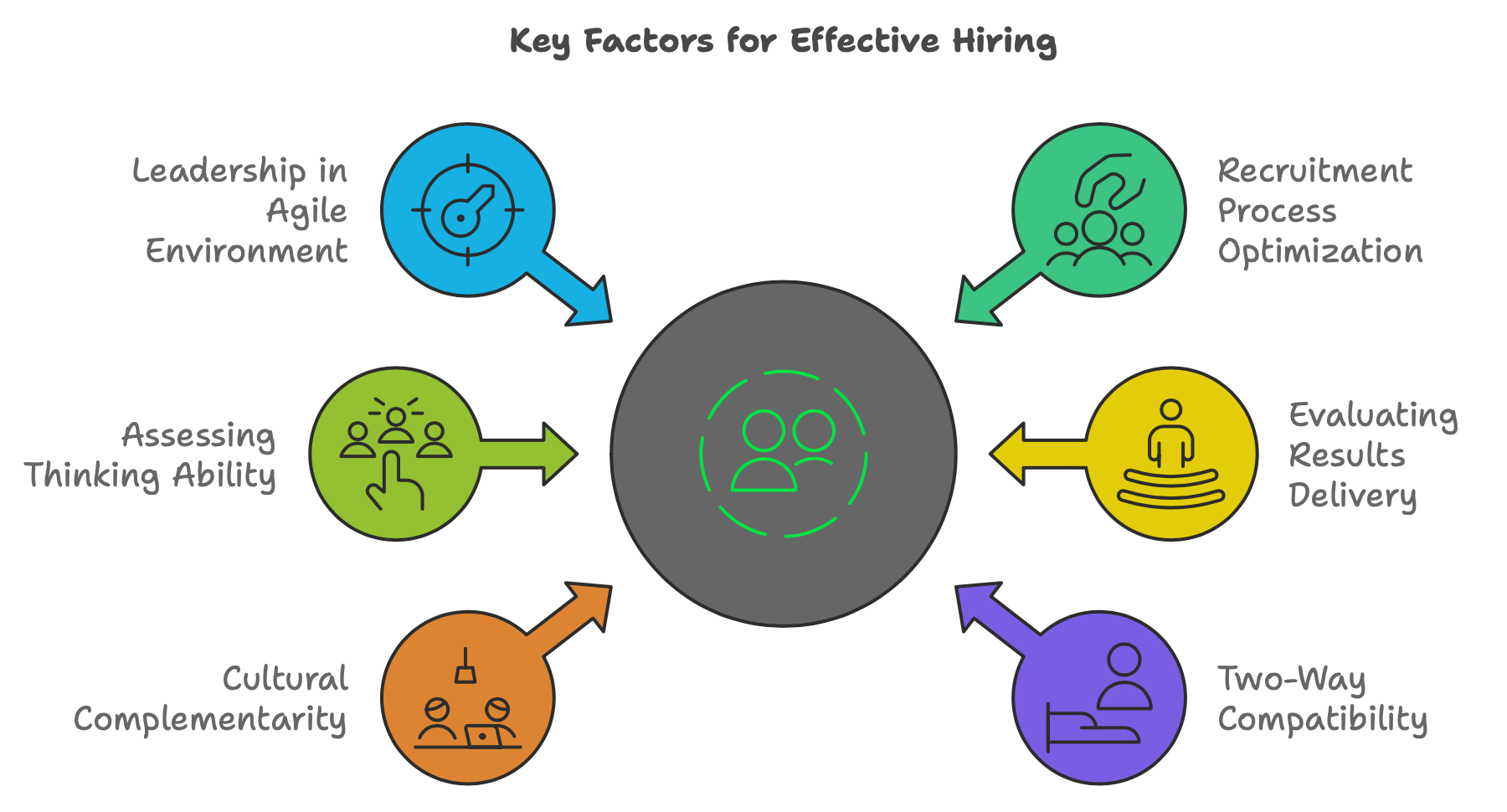Talent Acquisition Solutions: A Strategic Imperative
Talent acquisition solutions are pivotal within any thriving organization. Managers and entrepreneurs bear the immense responsibility of attracting the right people, knowing that their choices can make or break a startup, team, or project.Talent Acquisition: A Strategic Imperative
There is no doubt that Talent Acquisition is a pivotal function within any thriving organization. Managers and entrepreneurs bear the immense responsibility of attracting the right people, knowing that their choices can make or break a startup, team, or project. It requires considerable effort to attract exceptional individuals. People strategy consulting supports hiring managers with deep insights and structured information, playing a vital role in the fast-paced pursuit of talent. With over a decade of experience in searching for hundreds of open positions and shaping teams, I aim to share invaluable strategies that will provide you with valuable insights.
There is no doubt that Talent Acquisition is a pivotal function within any thriving organization. Managers and entrepreneurs bear the immense responsibility of attracting the right people, knowing that their choices can make or break a startup, team, or project. It requires considerable effort to attract exceptional individuals. People strategy consulting supports hiring managers with deep insights and structured information, playing a vital role in the fast-paced pursuit of talent. With over a decade of experience in searching for hundreds of open positions and shaping teams, I aim to share invaluable strategies that will provide you with valuable insights.

Efficiently Organizing the Process
In a startup environment, assembling a team capable of building the plane while it's already in flight is vital. One key finding is that leadership must be capable of thriving in an agile and open-minded environment. Large corporate hierarchies hold little value for quick-paced companies, where swift decision-making and seamless information flow are crucial for success. These organizations cannot afford a lengthy process for finding and incorporating new people since their focus lies in rapidly building products and hiring exceptional individuals. Moreover, as a lesser-known company, you may not have a flood of candidates knocking on your door. This makes recruitment process optimization offered by UnitiQ crucial to avoid slow, elaborate hiring that could disadvantage you against more established companies.
Assessing Thinking Ability
When evaluating a candidate's "thinking ability," it refers to their capacity for critical thinking and possessing the necessary knowledge base for the industry and specific skill set. Rather than relying on puzzles, which I personally disagree with, I prefer using well-known problems. I expect candidates to explain their thought process, demonstrating logical reasoning and their approach to challenges. Observing how they handle difficulties, reassess their approach, and ask relevant questions provides valuable insights into their problem-solving skills. I strive to make questions and tasks as practical and real-life as possible, reflecting scenarios the candidate may have encountered in their work or existing in the real world.

Evaluating Results Delivery
Assessing a candidate's past projects is crucial in understanding their ability to deliver results. Complex projects and the situations that arose within them shed light on the candidate's approach and their role in resolving challenges. It's important to delve into the details of their past experiences and clarify their specific contributions to achievements, even if they use the collective "we." While recognizing achievements as team efforts is commendable, understanding the candidate's individual impact is equally important.
Cultural Complementarity
Rather than solely focusing on cultural fit, it's crucial to consider how a candidate can complement the existing culture. Avoiding biases and striving for a diverse team composition is key to effectiveness. While a separate article might explore the advantages of diversity in depth, it's essential to seek individuals who bring new perspectives and value to the culture. Finding candidates whose basic values align with your aspirations is crucial, but they should also offer unique insights that differ from other team members. Prioritizing cultural complementarity over complete alignment can help address imbalances and foster innovation within the team.
The Two-Way Concept of Compatibility
Compatibility between a candidate and the company is a two-way street. It's not only about the candidate fitting into the company; the company should also align with the candidate's expectations. Transparently communicating factors like working hours, deadlines, and expectations is crucial. Assess whether the candidate shares your values and evaluate their demonstrated alignment in previous positions. However, avoid making snap judgments, as circumstances may have limited their ability to assert their interests. For example, a consultant might not have had the opportunity to advocate for the product's interests, which could lead to losing clients and potentially being fired.
The "No Jerks" Rule
Emphasizing the "no jerks" rule is of utmost importance as it can save you from numerous problems in the future. Jerks rarely change or change with great difficulty. Drawing from personal experience, I have faced the challenges of dealing with such individuals, and they eventually left, causing turmoil within the team. It is fortunate if only half the team departs before them. When encountering such a situation, the only options are either guiding the person onto the right path or showing them the exit.
Remember, hiring decisions significantly impact the success of an organization. By incorporating these insights and strategies, you can enhance your talent acquisition process and build a high-performing team capable of propelling your organization to new heights.
Talent Acquisition Solutions | UnitiQ
UnitiQ knows that hiring the right talent is crucial to a company’s success. They offer strategic recruitment solutions that go beyond filling roles quickly, focusing on optimizing the entire hiring process for fast-paced startups and growing companies.
I recommend you to read related articles about Active Talent Acquisition and UnitQ Solutions:
How Headhunting Differentiates Your Talent Strategy from Regular Recruitment Process?
Questions to Assess Cultural Fit of a Candidate
Are you using evidence-based assessments to make informed hiring decisions?
How Tailored HR Services Helping to Increase Organisational Efficiency
UnitiQ ensures you find candidates who not only bring the skills you need but also add fresh perspectives to your team. By emphasizing cultural complementarity and practical problem-solving, UnitiQ helps build high-performing teams that can adapt and thrive in a rapidly changing environment. It’s not just about hiring—it’s about driving your business forward.
We will be happy to help you with Talent Acquisition and HR tasks, please contact me, Olga Fedoseeva, Fonder at UnitiQ, directly:
My Telegram
My LinkedIn
I recommend you to read related articles about Active Talent Acquisition and UnitQ Solutions:
How Headhunting Differentiates Your Talent Strategy from Regular Recruitment Process?
Questions to Assess Cultural Fit of a Candidate
Are you using evidence-based assessments to make informed hiring decisions?
How Tailored HR Services Helping to Increase Organisational Efficiency
UnitiQ ensures you find candidates who not only bring the skills you need but also add fresh perspectives to your team. By emphasizing cultural complementarity and practical problem-solving, UnitiQ helps build high-performing teams that can adapt and thrive in a rapidly changing environment. It’s not just about hiring—it’s about driving your business forward.
We will be happy to help you with Talent Acquisition and HR tasks, please contact me, Olga Fedoseeva, Fonder at UnitiQ, directly:
My Telegram
My LinkedIn








